In 1944, geologist Harold Fisk published his magnum opus, the Geological Investigation of the Alluvial Valley of the Lower Mississippi River, a series of extraordinarily beautiful maps documenting the ancient courses of the Mississippi River. When I first became aware of these maps in 2010, I was captivated by the notion of a river leaving hidden traces of its past courses on the landscape.
Rivers are the great metaphors for time, and the maps of the Mississippi’s ancient courses suggested memory to me, both the river’s memory and my own. The project evolved into an exploration of my ancestral roots in New Orleans, where my great-grandfather was a steamboat captain on the Mississippi. I overcame my initial reluctance, and allowed personal memories and artifacts, such as my mother’s recipe cards and the toile patterns of my New Orleans grandmother’s and great aunt’s curtains, to enter into the work.
As I embarked upon this project, I re-read Mark Twain to begin my research. The wild river described by Twain, with its annual, destructive floods, no longer exists of course, having been tamed by the Army Corps of Engineers’ extensive series of levees, locks, and damns. My earliest memory of the River, in fact, is my grandmother explaining to me that it flowed, unseen by me, on the other side of the big hill she called “the levee.”
My reading about the Mississippi broadened and deepened, and I grew to understand the determinative roll the River has played in the course of human history, pre-history, and natural history on the North American continent. The pieces became more complex, dense and layered as I read about the ancient Mississippian cultures; the Spanish, French, and Anglo explorers; and the horrors of slavery upon which the cotton and sugar economies depended. The George Caleb Bingham exhibition at the Amon Carter Museum in Fort Worth opened my eyes to his masterful works expressing the rich life ways and mystery of the western rivers, and to the important contributions of artists to our understanding of the River’s meaning.
This body of work that began with the ghostly traces of an ancient river has grown to encompass my own ghosts and the ghosts of many others whose lives have been touched and transformed by the great Mississippi.
Liz Ward
May 4, 2015
-
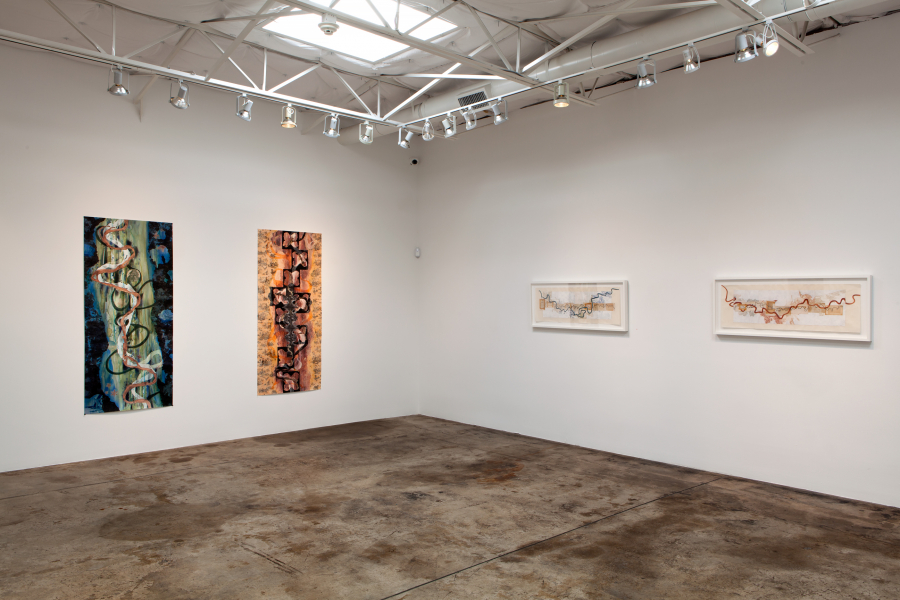
Talley Dunn Gallery, Dallas, 2015
-
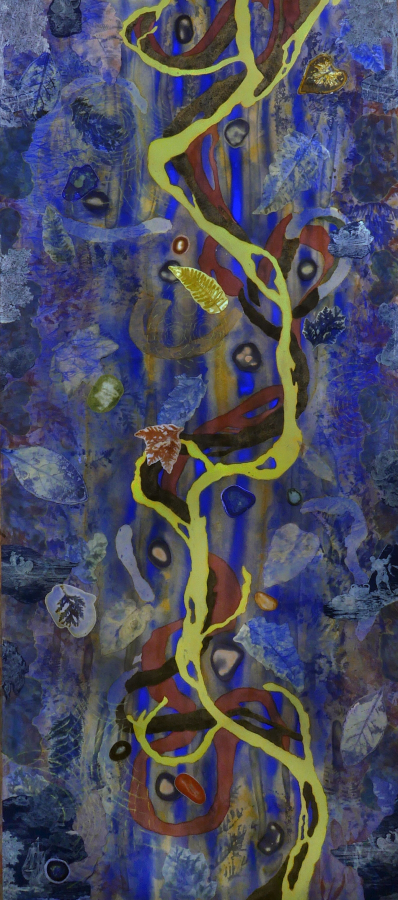
Ghosts of the Old Mississippi: Floating Life, 2019, Watercolor, pastel, conté, and collage on paper, 72 x 32"
-
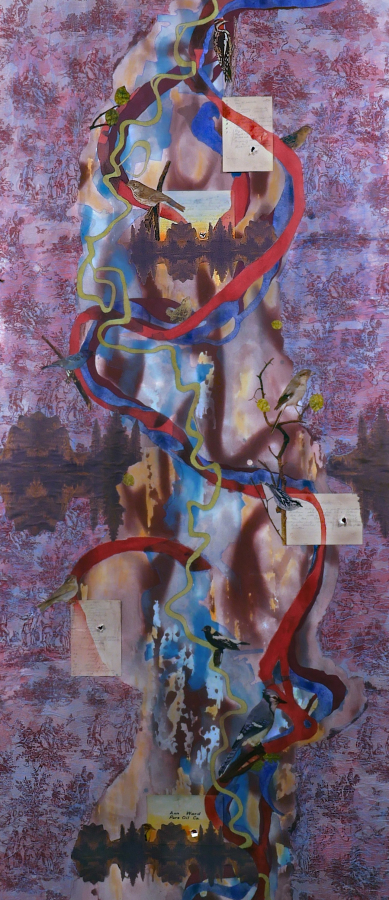
Ghosts of the Old Mississippi: St. Francis(ville), 2019, Watercolor, pastel, and collage on paper, 72 x 32"
-

Ghosts of the Old Mississippi: Dismal Swamp/Northern Lights, 2015, Watercolor, gesso, silverpoint, pastel, and collage on paper, 72 x 32”
-
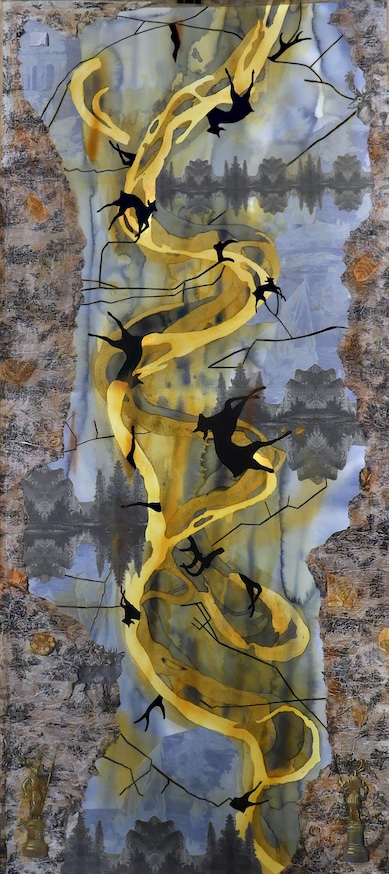
Ghosts of the Old Mississippi: Issaquena County (Muddy Waters), 2019, Watercolor, pastel, gesso, and collage on paper, 72 x 32"
-
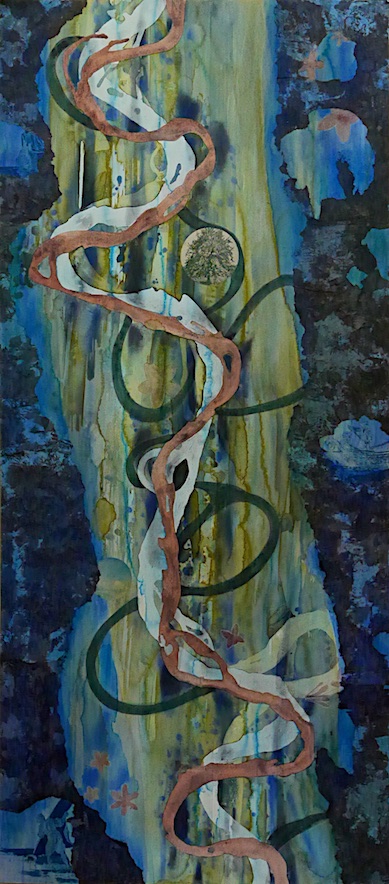
Ghosts of the Old Mississippi: Strange Fruit, 2015, Watercolor, pastel, gesso, ink, and collage on paper, 72 x 32”
-
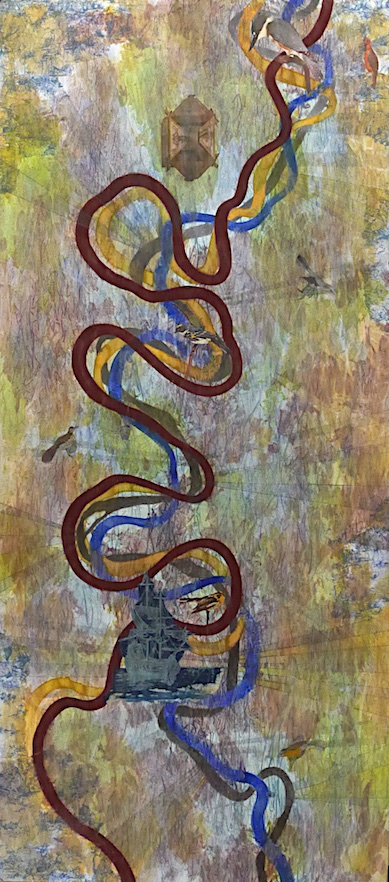
Ghosts of the Old Mississippi: Baton Rouge to Donaldsonville, watercolor, 2015, Watercolor, gouache, pastel, and collage on paper, 72 x 32”
-
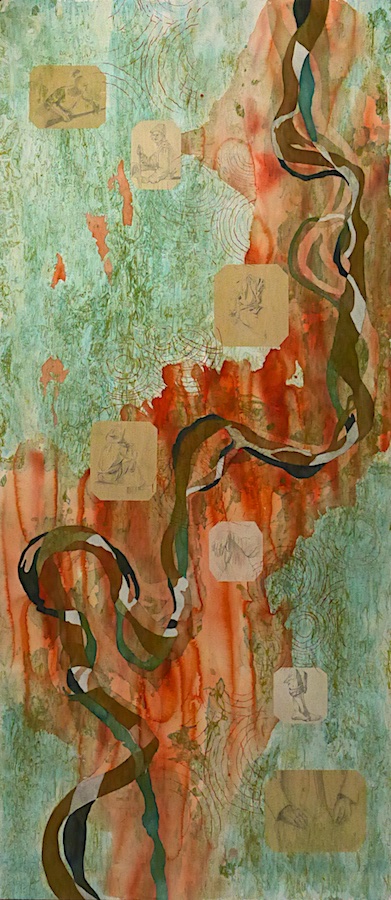
Ghosts of the Old Mississippi: River Men After Bingham (for Captain Hilbert), 2015, Watercolor, graphite, and gesso on paper, 72 x 32”
-
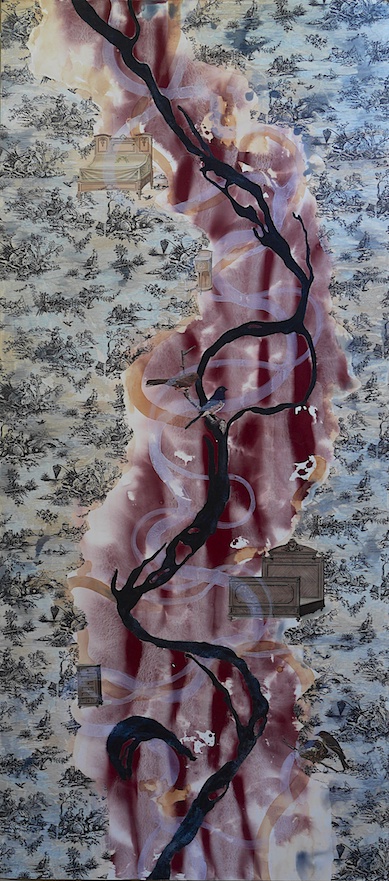
Ghosts of the Old Mississippi: Beef Island to Memphis, 2013, Watercolor, solvent transfer, and collage on paper, 72 x 32”
-
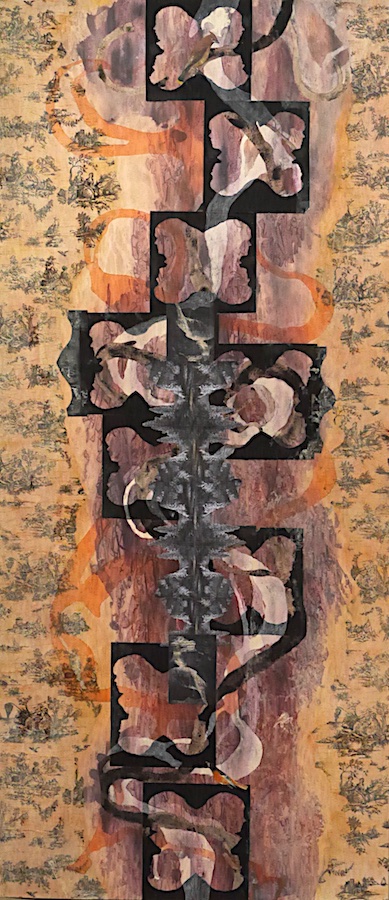
Ghosts of the Old Mississippi: Writhing River, 2014, Watercolor, ink, graphite, pastel, and collage on paper, 72 x 32”
-

Natchez to New Orleans (for Ann), 2015, Gesso, acrylic, graphite, and collage on paper, 14 ½ x 42 ½”
-
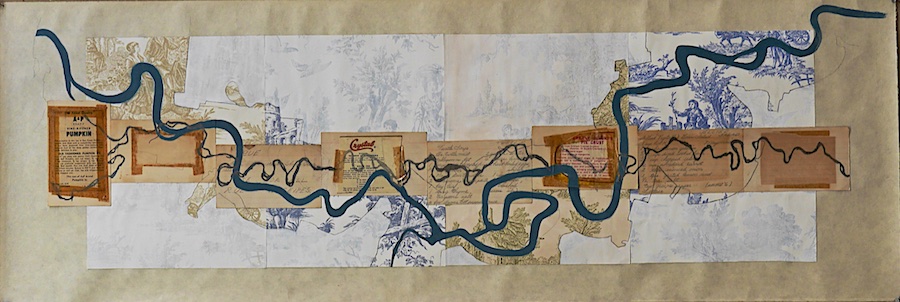
New Orleans to Natchez (for Ann), 2015, Gesso, acrylic, graphite, and collage on paper, 14 ½ x 42 ½”